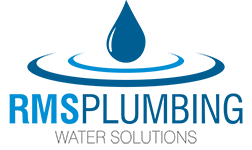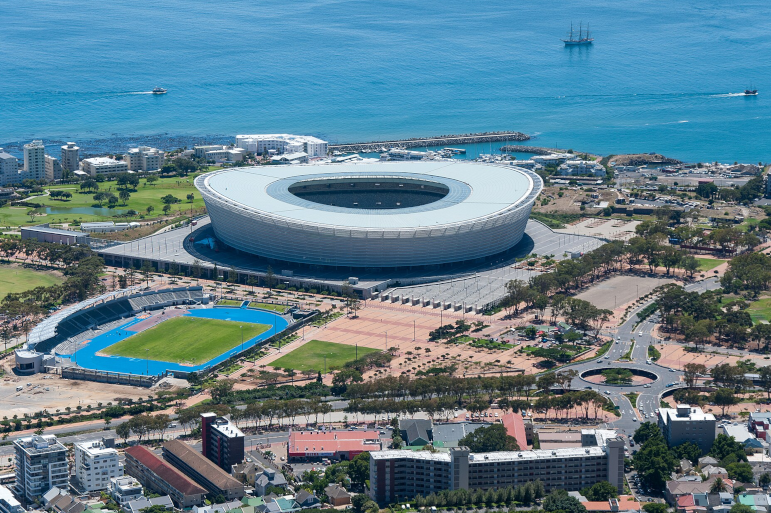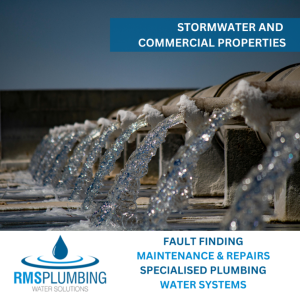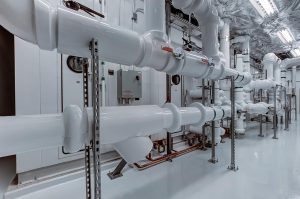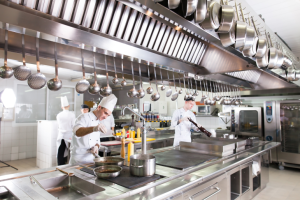While the focus of stadium management lies on the spectator experience, the underlying infrastructure, including plumbing, plays a crucial role in ensuring a comfortable and safe environment for staff and spectators alike. This article explores the importance of proficient plumbing system operations, particularly for water and waste reticulation systems, restrooms and catering facilities.
Common Plumbing Issues in Stadiums.
- Leaks
Leaks can be a significant problem in stadiums, equally during periods of inactivity or when hosting large crowds. Water leaks can lead to constant increases in operational costs for repairs, structural damage and safety hazards. Not to mention substantial financial loss for high water bills, especially when the leaks are not immediately apparent or visible.
- Clogged drains
Clogged drains are a common issue in stadiums especially in areas with high foot traffic and heavy usage. Such as restrooms and kitchens. Blockages tend to cause leaks, unpleasant odours, potential flooding and even backups into other plumbing fixtures.
- Corrosion
Corrosion is an expected process that can occur over time. Exposure of harsh chemicals, such as those used for cleaning and maintenance, can accelerate corrosion within a plumbing system. Leading to leaks, reduced water flow and even pipe failures.
- Water Pressure Complications
Fluctuating, extreme, or low water pressure can affect the performance of plumbing systems and can cause damage to pipes and fixtures. Low water pressure can make it difficult to use critical sanitation facilities, while high water pressure can cause leaks, bursts and severe damage to pipes and fittings.
Fault-Finding Techniques
Visual Inspections
Regular comprehensive visual assessments are a fundamental aspect of pro-actively managing plumbing systems in stadiums. By carefully examining all plumbing fixtures, pipes and joints, one can often identify signs of leaks, corrosion, or damage. Due to the larger size of stadium plumbing systems and their locations, it is beneficial to examine and identify potential problems before they become critical operational disasters.
Pressure Testing
Pressure testing is a valuable technique for detecting leaks that may not be immediately apparent. By applying pressure to water supply lines and monitoring for pressure loss, you can identify leaks that are hidden beneath surfaces or in underground pipes. While stadium plumbing pipes are often located in ducts, pressure testing can still be a valuable tool for identifying leaks in concealed areas.
Water Usage Monitoring
Installing devices that monitor water consumption can provide valuable insights into potential plumbing issues. These devices can detect unusual usage patterns or excessive water loss, which may indicate leaks or other problems. In stadiums, water usage monitoring can be particularly effective in identifying leaks that may go undetected due to infrequent use during non-event periods.
Smart Leak Containment
To protect property value and sustain efficient operations, installing specialised leak detection sensor systems on water lines offers remarkable maintenance benefits. Once excessive water use is detected, be it during an event or when the stadium is empty, the device automatically shuts off a specified section of water line to prevent further water loss and damage until the leak is identified and repaired.
Regular Maintenance
Preventive maintenance is essential for inhibiting plumbing problems and minimising the need for costly repairs. By implementing a comprehensive maintenance schedule, as well as water monitoring equipment, you can address minor issues before they escalate into major problems. This may include tasks such as cleaning & treating drains, replacing worn-out parts, and inspecting pipes and fixtures for signs of damage. Regular maintenance is especially important in stadiums, where plumbing systems may be subjected to heavy usage during events and periods of inactivity.
South African-Specific Considerations
- Extreme Weather: South Africa’s diverse climate, with hot summers and occasional heavy rains, poses unique challenges for plumbing systems.
- Regulations and Standards: Adherence to South African regulations and standards is essential for ensuring safety, compliance and functioning systems.
- Local Materials and Techniques: Combining approved and trusted materials available in the South African market with established plumbing expertise ensures comprehensive solutions.
Effective fault-finding is essential for maintaining the reliability and efficiency of stadium plumbing systems. By implementing regular inspections, utilising advanced techniques, and addressing South African-specific considerations, stadium owners and operators can minimise the risk of plumbing-related issues and ensure a positive experience for spectators.
RMS Plumbing Water Solutions is a leading South African plumbing company that has been providing exceptional services since 2010. With a commitment to excellence and a passion for the industry, RMS Plumbing Water Solutions has established itself as a trusted and reliable partner for businesses and homeowners alike.
Recognised for their expertise and dedication, RMS Plumbing Water Solutions are within the top 3 in South Africa and a finalist at the 2024 IOPSA Plumbing Industry Awards. This prestigious recognition highlights their commitment to quality workmanship, exceptional customer service, and contributions to the industry.
